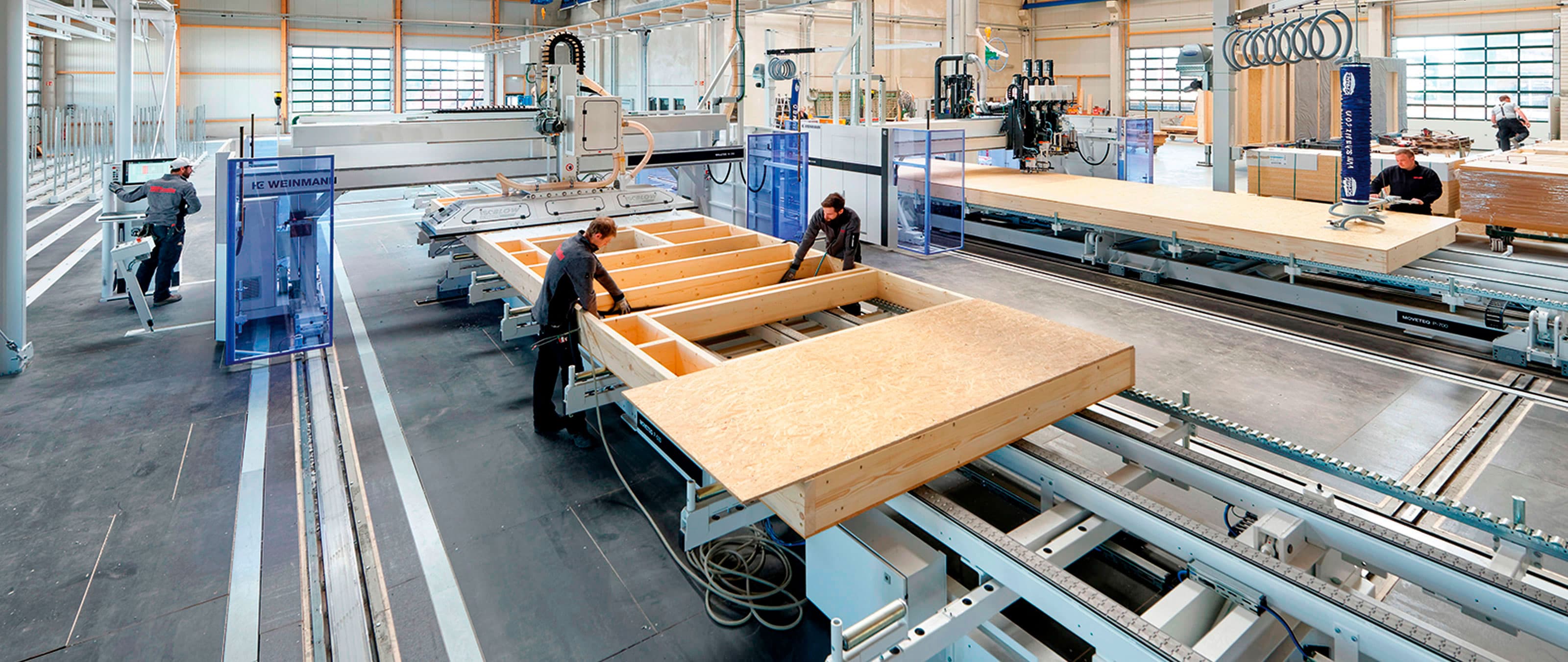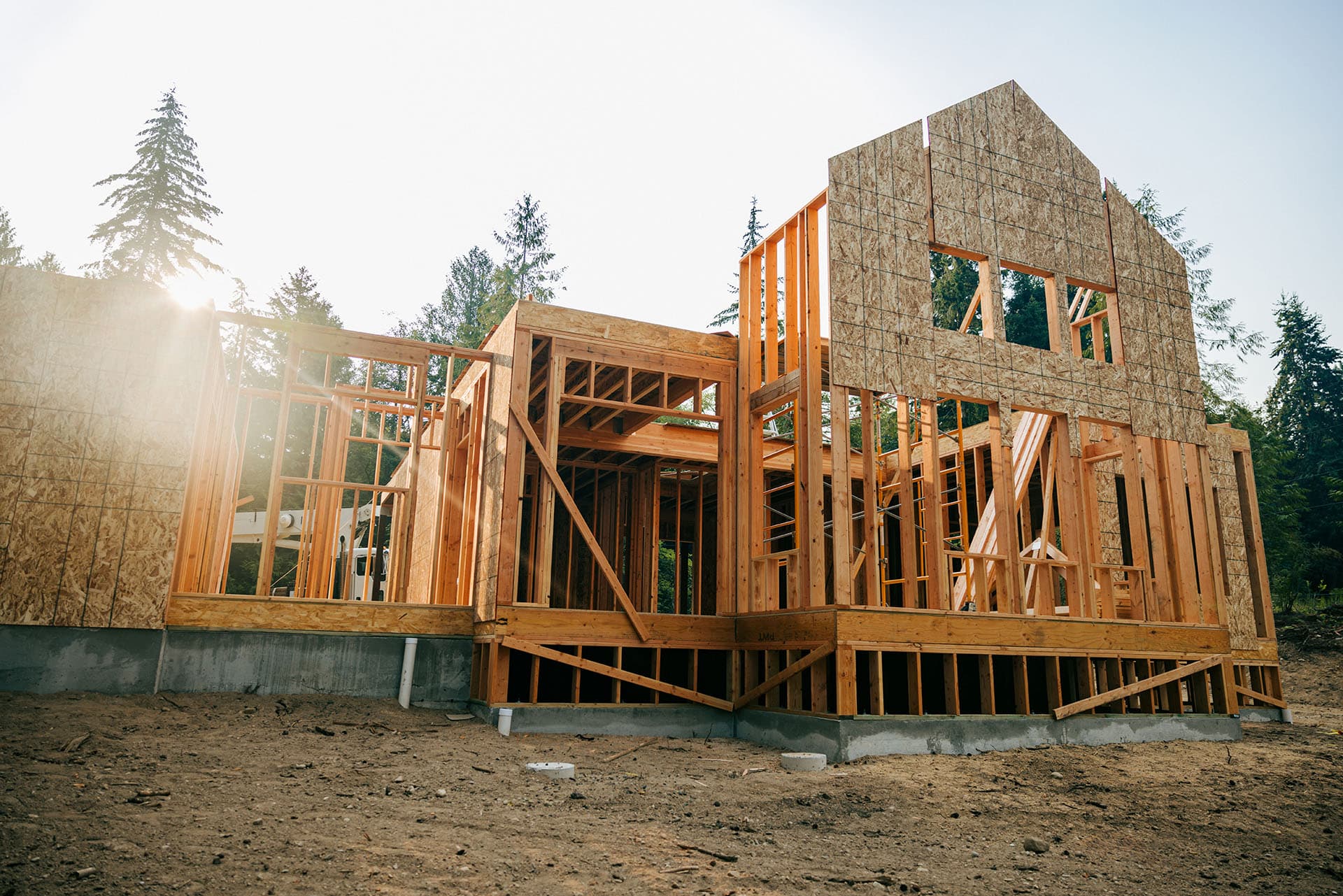How modular tech is reshaping the future of homebuilding
Stelumar Advanced Manufacturing Inc. (SAMI) is revolutionizing housing construction with advanced robotics, automation, and modular innovation.

Key highlights
In the latest episode of our CRE Innovation Series, Peter Hass, General Manager at Stelumar Advanced Manufacturing Inc. (SAMI), sat down with Ray Wong, Vice President of Data Solutions at Altus Group, to discuss SAMI’s technology-driven approach to modular housing development
SAMI has developed a cutting-edge, factory-driven process that cuts the construction timeline for six-story condo buildings from the traditional three years to just six months
By leveraging sustainably sourced wood and engineered lumber, SAMI is able to significantly lower the environmental impact of its projects while advancing its commitment to sustainability
SAMI’s factory-driven approach will significantly minimize waste by ensuring that every piece of material is cut and used with precision
The company’s upcoming facility in Toronto, set to launch in 2026, is expected to be the most advanced, automated, and data-driven manufacturing hub of its kind in North America
Now more than ever, the future belongs to builders who think differently, and SAMI is at the forefront of that shift
Tackling Canada’s housing crisis with modular construction, sustainability, and more scalable solutions
Over the last few years, homebuyers across Canada have found themselves in the grips of a burgeoning housing crisis; on one hand, housing affordability devolved to new lows, pushing many would-be buyers out of the market to wait for more favorable prices and economic conditions. On the other hand, available housing supply has struggled to keep pace with demand due to mounting development challenges, including market volatility, supply chain disruptions, rising construction costs, and persistent labor shortages.
This dilemma, however, has proven to be more complicated and nuanced than a simple supply and demand mismatch. To this effect, a recent influx of condo supply flooding the market illustrated a stark reality: today’s buyers don’t just want any housing, and certainly not at today’s prices. Instead, most would-be buyers appear content to wait for more significant price corrections to materialize, or they are solely interested in properties designed more for long-term living than speculative investing or short-term turnover. In other words, they’re looking for a home to live in, not a unit to rent out or flip. This situation is currently worsening across Toronto, as new home sales are expected to reach their lowest level in decades with single-family sales down over 50% and condo apartment sales down nearly 65% year-over-year (YoY). At the same time, similar challenges are being felt in other major cities across Canada, including Vancouver, Montreal, and Calgary.
Against this backdrop, the need for new housing supply remains urgent - but the solution must be bold, strategic, and perhaps more than anything, more scalable than what has been developed in the past. In the latest episode of our CRE Innovation Series, Peter Hass, General Manager at Stelumar Advanced Manufacturing Inc. (SAMI), sat down with Ray Wong, Vice President of Data Solutions at Altus Group, to discuss SAMI’s technology-driven approach to modular housing development, which promises faster residential development timelines, reduced costs, and enhanced sustainability.
Leveraging new technology to usher in a new era of housing
At a time when housing crises demand smarter builds and shorter development timelines, SAMI is stepping up with a factory-driven process that cuts the construction timeline for six-story condo buildings from the traditional three years to just six months. According to Hass, the secret to SAMI’s success lies in its ability to rethink the construction timeline entirely. Unlike conventional builds, SAMI’s process runs multiple workflows in parallel, manufacturing modules while the foundation is being poured and permitting are still in progress.
“Think of the modules as Lego blocks,” Hass explains. “We’re manufacturing these components in a highly controlled factory setting, which allows us to stitch them together quickly and efficiently on-site.” This parallel production model not only accelerates timelines but also minimizes the disruptions and inefficiencies often caused by weather, labor shortages, and site-specific constraints. It’s a model that reflects a broader shift in how the industry approaches construction - one that prioritizes precision, predictability, and scale.
“Historically, modular housing and prefab have been around, but the technology has completely changed over the last 20 years,” Hass shares. “Everything we do is designed in 3D, which allows us to take Revit models and automatically transition them into machine-readable drawings. This eliminates the need for manual conversions, saving time, reducing costs, and ensuring precision.” What’s more, SAMI provides a “box of rules” for customization, ensuring that every unit fits within production parameters while still offering buyers a range of design choices. “Within the units themselves, developers can offer ‘good, better, best’ finishing options, giving buyers flexibility without compromising efficiency,” he adds.
The strategic integration of advanced robotics and automation is another game-changing element. By manufacturing prefabricated walls and floors in a controlled environment, SAMI will ensure that every nail, screw, and component is placed with exact precision. The result? Homes that would typically take six weeks to frame on-site can now be framed in a single day. “By bringing automation into the process, we’re able to operate at a level of efficiency that wasn’t possible even a decade ago,” Hass concludes.
Building for people and the planet
Sustainability remains a key development consideration and priority, but achieving sustainable builds at scale has been, historically, difficult. But in today’s climate, ESG isn’t just a buzzword – it’s a mandate. “For developers, it’s about meeting regulations, but it’s also about staying competitive in a market where tenants, buyers, and investors are demanding greener solutions,” Hass explains. “Our process allows them to meet these goals without sacrificing quality, customization, or cost-efficiency.”
To this effect, SAMI is dedicated to creating buildings that function as “sustainable ecosystems,” with a strong emphasis on reducing embodied carbon. By leveraging sustainably sourced wood and engineered lumber, SAMI aims to significantly lower the environmental impact of its projects while advancing its commitment to sustainability. “Not only does wood store carbon naturally, but when combined with engineered lumber and advanced automation, we can use less material, reduce thermal bridging, and create better-performing walls,” Hass adds. “This is a game-changer for both construction efficiency and environmental impact. It’s about building smarter, not just faster.” As an added benefit, wood is renewable, recyclable, and far less energy-intensive to produce than steel or concrete.
SAMI’s factory-driven approach will significantly minimize waste by ensuring that every piece of material is cut and used with precision. Unlike traditional on-site construction, where material waste can reach up to 30%, SAMI’s controlled environment will allow for near-zero waste. “In our factories, every piece of wood, every screw, and every panel is accounted for. There’s no guesswork — everything is optimized for efficiency and sustainability,” Hass explains. In this way, SAMI is building homes that are not only better for people, but also better for the planet.
Solving the housing crisis at scale
SAMI’s vision goes beyond just speeding up timelines and hitting sustainability targets - it sets out to address Canada’s housing crisis at an unprecedented scale. Backed by Mattamy Asset Management, the parent company of Mattamy Homes, SAMI is uniquely positioned to deliver thousands of homes annually. Its upcoming facility in Toronto, set to launch in 2026, is expected to be the most advanced, automated, and data-driven manufacturing hub of its kind in North America.
“This is going to be their global flagship factory,” Hass revealed, referring to SAMI’s collaboration with one of the world’s leading equipment manufacturers. “We’re taking a big swing at this. Our goal is to be the industry leader and to deliver housing solutions at a scale that Canada has never seen before.”
Unlike traditional modular housing companies, SAMI works independently of its investors, enabling it to partner with a wide range of developers and scale production smoothly. This independence is critical, as it allows SAMI to adapt to the unique needs of different developers, projects, and communities while maintaining operational efficiency.
“Every developer works at a different pace and has unique needs,” Hass notes. “But as a factory, we need to maintain a smooth and consistent production flow. By working with a diverse range of developers, we can ensure that our factory operates efficiently while meeting the demand for housing across the region.”
SAMI’s vision for the future
Complex problems often require bold solutions, and Canada’s housing crisis is certainly no exception. By leveraging advanced technology, reducing environmental impact, and dramatically shortening construction timelines, SAMI’s “smarter, faster, and greener” approach to modular construction has the potential to fundamentally reshape the future of housing in Canada.
“Canada needs to accelerate the construction of new homes, especially affordable ones. Companies like SAMI are showing us how it can be done,” adds Wong, noting that the traditional methods of construction are no longer sufficient to meet the challenges of today. “We can’t keep solving 21st-century housing problems with 20th-century solutions,” Wong added. “The future belongs to builders who think differently, and SAMI is at the forefront of that shift.”
Want to be notified of our new and relevant CRE content, articles and events?
Authors

Raymond Wong
Vice President of Data Solutions at Altus Group

Peter Hass
General Manager at Stelumar Advanced Manfacturing, Inc.
Authors

Raymond Wong
Vice President of Data Solutions at Altus Group

Peter Hass
General Manager at Stelumar Advanced Manfacturing, Inc.
Resources
Latest insights






